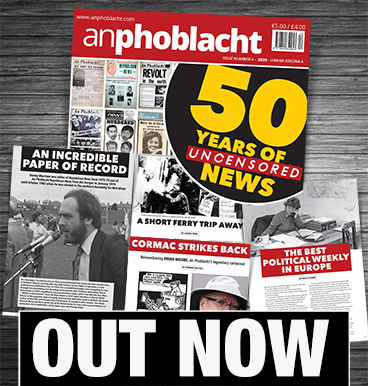The new Free State slays four Republicans in Mountjoy
6 December 2022
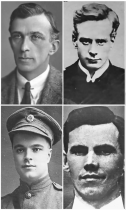
The new Irish Free State of 26 Counties officially came into existence on 6 December 1922. Two days later on 8 December its government committed an act that was to define its treacherous nature in the eyes of Republicans for many years - the execution of Liam Mellows, Rory O’Connor, Joe McKelvey and Richard Barrett in Mountjoy Jail. Free article
100th Anniversary of Liam Mellows to be marked in Galway
30 November 2022
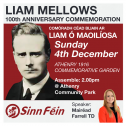
Galway republicans will remember and commemorate Liam Mellows on 4 December, in Athenry. This Galway Sinn Féin event will commence with a march from Athenry Community Park at 2pm by a piper-led procession walking past his former residence in the town to the 1916 Commemorative Garden. Free article
Liam Mellows: the revolutionary legacy
24 November 2022

In ‘The Gates Flew Open’, Peadar O’Donnell’s inspirational memoir of his days as a Republican prisoner during the Civil War, Liam Mellows is described as “the richest mind our race had achieved for many a long day”. Others testified to the magnetism of his personality and his ability to motivate and to organise, as well as his deep thinking and profound commitment to the cause of the Irish Republic. Free article
The Mellows I knew
24 November 2022
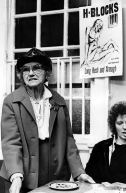
This article first appeared in An Phoblacht in December 1932, ten years after the execution of Liam Mellows. Nora Connolly O’Brien, daughter of James Connolly and a revolutionary in her own right, was a close friend of Liam Mellows. She died in 1981 after a life of activism, including supporting the protesting Republican prisoners in the H-Blocks and Armagh Prison up to the time of her last illness. Free article
Dublin remembers executed Republicans
23 November 2022

The execution of Erskine Childers 100 years ago on 24 November 1922 marked the culmination of the demonisation of this principled, committed and talented Republican activist by both the British and Free State governments. Free article
Four lads from the Liberties
15 November 2022
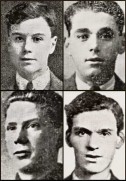
The Free State regime carried out the first prison executions under their new coercive legislation when four young men from the Liberties in the south city faced the firing squad in Kilmainham Jail, Dublin, on 17 November 1922. They were Volunteers Peter Cassidy, James Fisher, John Gaffney and Richard Twohig of the IRA’s Dublin Brigade. Free article
Events to mark Centenary of Free State executions of Republicans
9 November 2022

The centenary of the execution of Republican prisoners by the Free State government is to be marked with commemorative events around the country in November and December. The Free State government introduced Emergency Powers legislation which gave its Army authority to court-martial prisoners and sentence them to death for a range of offences including possession of weapons. That law of October 1922 was accompanied by a trenchant anti-IRA pastoral letter from the Catholic bishops. Free article
Sligo’s Noble Six
17 September 2022
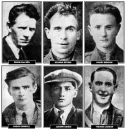
By mid-September 1922 the Republican forces were on the retreat throughout Ireland and were reverting to rural guerrilla tactics while the Free State controlled the cities and towns. Free article
Free State atrocities begin in Dublin
23 August 2022

The day after Michael Collins was shot, Richard Mulcahy, Chief of Staff of the Free State Army, sent a message to his soldiers. He urged them to “stand calmly by your posts” and said: “Let no cruel act of reprisal blemish your bright honour.” Yet in Dublin, within days of that message, and as the body of Michael Collins lay in state in City Hall, Free State forces carried out atrocities which up to recent times were largely forgotten. Free article
The tragedy of Michael Collins
18 August 2022

We are seeing a deluge of media coverage on the centenary of the death of Michael Collins. This is natural for such a towering figure in our history. It is unfortunate, though, that so much that is said and written about the Treaty and the Civil War is dominated by the figures of Collins and Dev, often to the exclusion of other key figures and usually glossing over the political issues involved. Free article
Arthur Griffith - a reflection
12 August 2022

Arthur Griffith died 100 years ago as the Civil War escalated, a war brought about as a direct result of his decision to sign the Treaty. Griffith’s legacy will forever be defined by that one act. Free article
Arthur Griffith: 31 March 1871 – 12 August 1922
12 August 2022
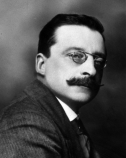
Arthur Joseph Griffith was born at 61 Upper Dominick Street, Dublin, son of Arthur Charles Griffith, printer, and Mary Whelan. He attended the local Christian Brothers school and began work as an office boy in Franklin Printing at 13. He was a voracious reader and studied for the rest of his years. He was deeply interested in Irish history, culture and language and was a member from his teens of many clubs such as Young Ireland League, the Celtic Literary Society and Conradh na Gaeilge (the Gaelic League). Free article
Execution of Reginald Dunne and Joseph O’Sullivan 100 years ago
10 August 2022

Often in history, and in politics, plans are overtaken by events. This could be said of the execution by two IRA Volunteers of Henry Wilson, the British military advisor to James Craig's Stormont parliament in 1922. Shot dead on the steps of his home, his death has been associated with the Free State's decision to attack the republican garrison in the Four Courts, thus setting the Civil War in train in earnest. Free article
Harry Boland
31 July 2022
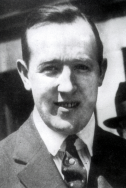
The death of Harry Boland, coming less than a month after that of Cathal Brugha, was a major blow to the Republican cause. He was fatally wounded in Skerries, Co. Dublin, 100 years ago and died in hospital on 1 August 1922. Free article
Centenary of the death of Cathal Brugha
5 July 2022

ONE of the first leaders of the Irish people to lose his life in the Civil War in 1922 was Cathal Brugha TD who for many years had been a key figure in the IRA, Sinn Féin and Conradh na Gaeilge. Free article
Page 2 of 27



